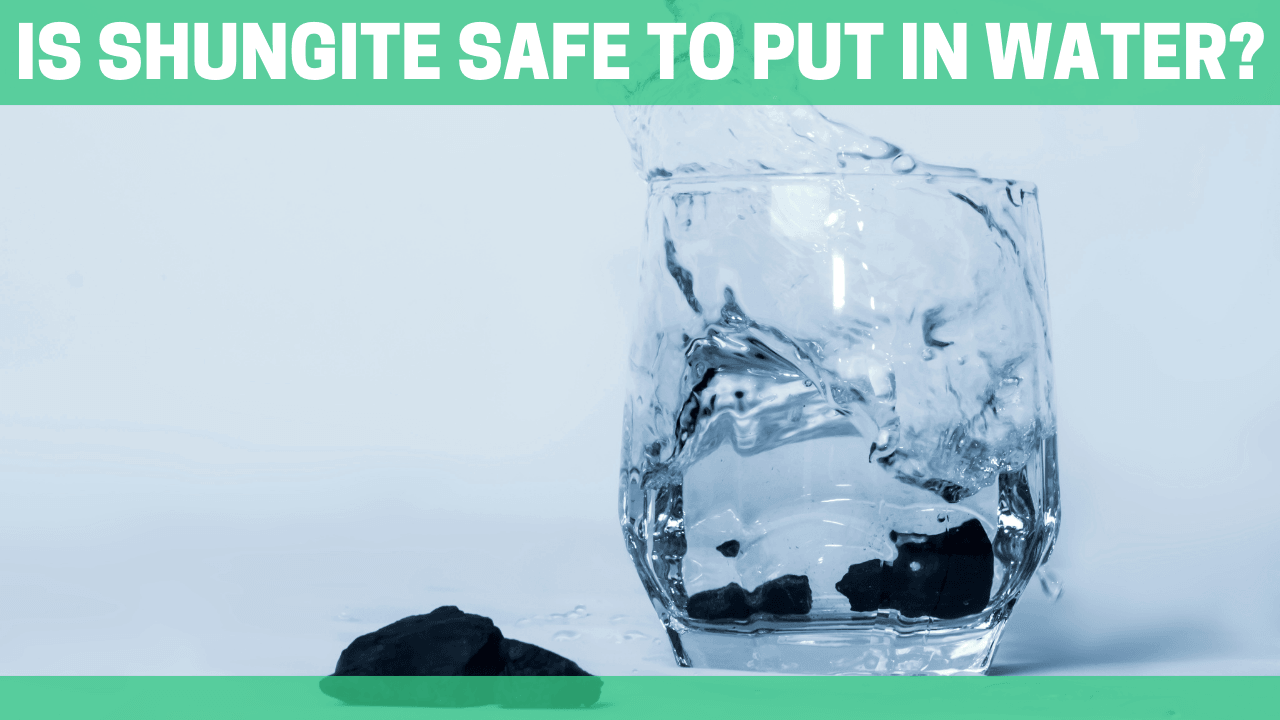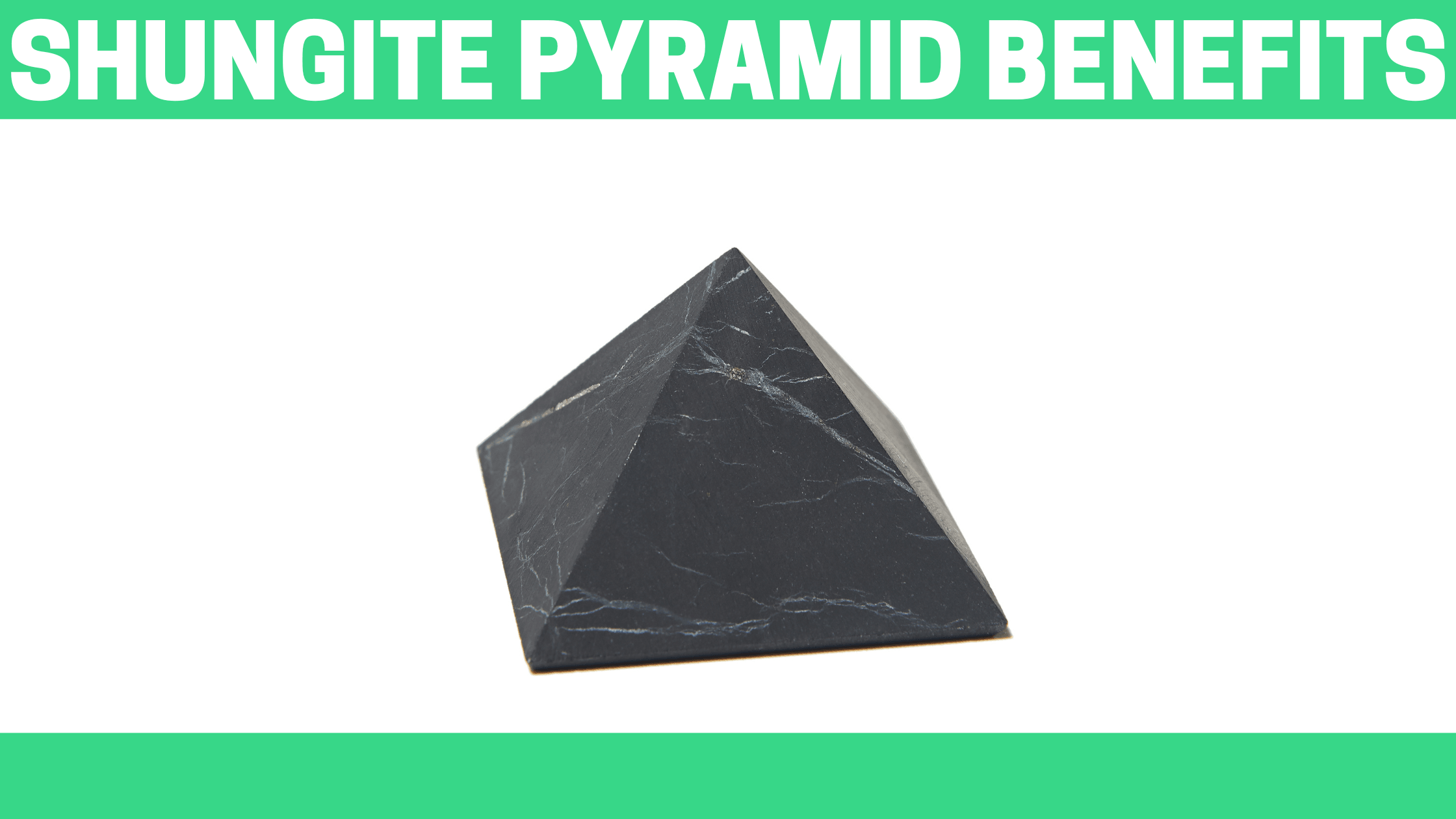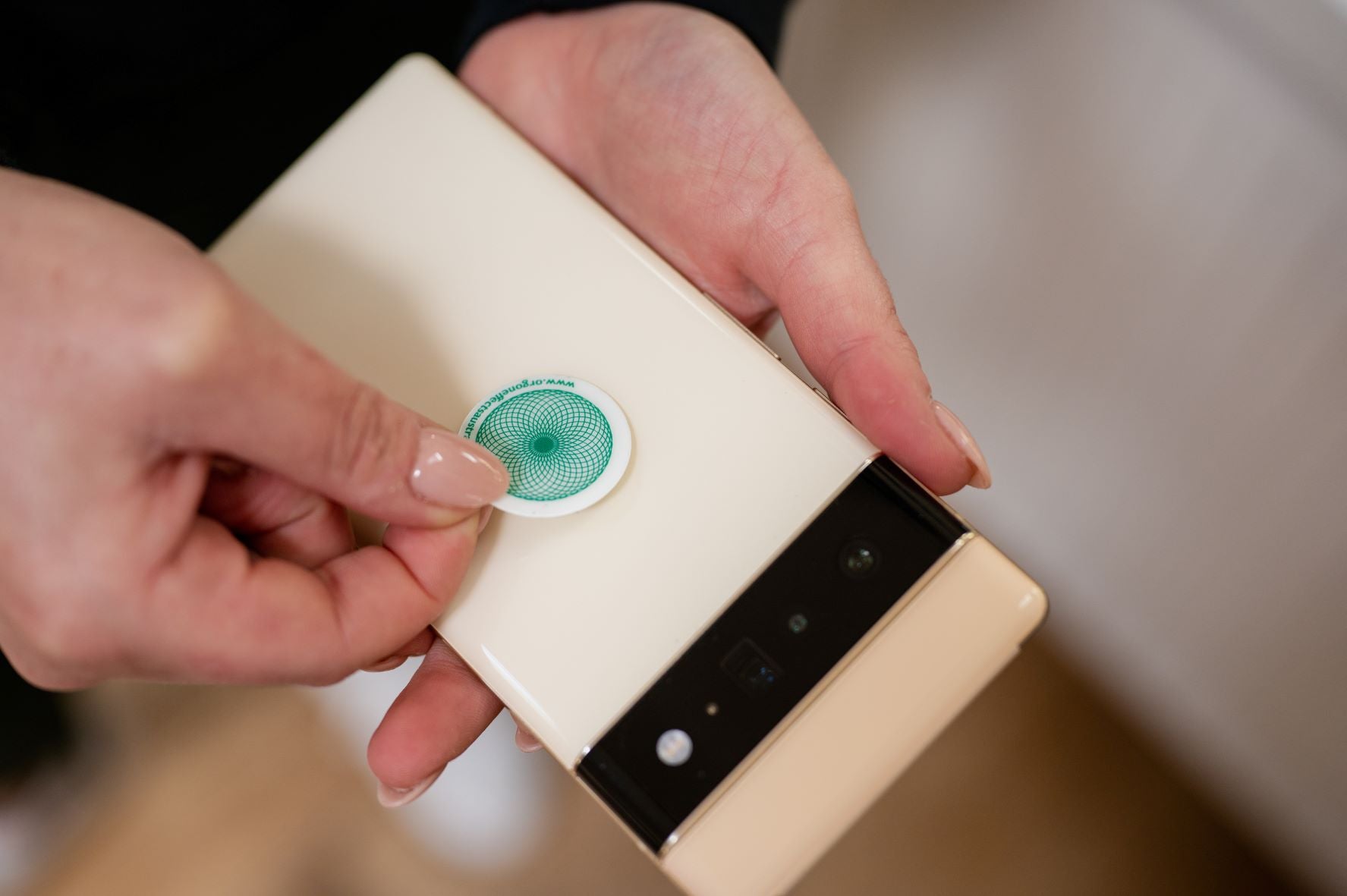Is Shungite Safe to Put in Water?
Although it is common for people to put Shungite stone in water, this should be done with the understanding of the characteristics of shungite and how exposure to water can change that.
So is shungite safe to put in water? Let’s explain.
Is Shungite Safe to Put in Water?

In general, we advise people not to submerge their crystals, gemstones, minerals, or jewelry in water for long periods.
However, we understand it is common and many people do it. But it has been shown time and time again that water damages the finish of polished stones, changes exterior colors, dulls them, causes them to lose their shine, or even promotes oxidation.
Water can also promote the formation of cracks in the material, which can lead to unexpected breakage.
The Mohs Hardness Scale

There are several reasons people choose to soak their shungite in water, but it should be done with the understanding that shungite is a relatively soft stone.
Shungite is just a 3 to 4 on the Mohs hardness scale, meaning it can be vulnerable to water damage if you leave it in water for long periods.
To put this in perspective, the Mohs hardness scale goes from 1 to 11. A diamond comes in at only 10. Wheras a fingernail comes in at a 2.5.
Shungite is only a 3 to 4 on this scale, which is about as hard as a penny.
Benefits of Placing Shungite in Water
So why would anyone put their shungite in water? Well, there are several benefits that may make it worth the risk.
Infusing shungite into water enriches it with oxygen and fills it with magnesium, calcium, and some other essential mineral components.
That is why we decided to create Shungite Rocks for Water that can be used at home and on the go.
By placing shungite stones in water, without human intervention or the addition of chemicals, a natural “cure” is created – a mineral solution with unique healing properties.
Can Shungite Purify Water?

Many people believe that shungite can purify water. Shungite has been used for centuries as a water purifier.
Beyond that, this material is also believed to have properties that fight viruses and bacteria present in the water.
A 2018 study showed that shungite can be used as a filter to remove contaminants from water and organic pesticides.
Also, in 2017, it was discovered that the carbon in shungite removes radioactive compounds from water.
Shungite is an unusual black stone composed almost entirely of carbon and has been used throughout history to purify or purge water.
To get these powerful benefits, simply soak these powerful stones in water for a few days (usually 2 or 3) to filter the water. Shungite owes these phenomenal properties to its intricate chemical composition and its carbon-based fullerene inner structure.
What are Fullerenes?

A fullerene is a molecule made up of carbon atoms.
The discovery of fullerene was rewarded with the Nobel Prize in Chemistry in 1998.
Often called a buckyball, fullerines are a soccer ball-like stone that is named for famous architect Buckminster Fuller. This is because its shape resembles the pattern of the geodesic dome he created.
These unique carbon-based molecules have powerful antibacterial and antimicrobial properties, as well as a proven unique ability to serve as long-lasting antioxidants.
Placed in water, shungite fullerenes attract and neutralize contaminants contained in the water. They can normalize cell metabolism, increase enzyme activity and cell stability. Fullerenes identify and neutralize excess free radicals and prevent cell damage.
Ultimately, these molecules are largely responsible for the shungite stone’s healing properties and its effectiveness in purifying and restructuring water.
Fullerenes are still being researched by scientists around the world and are used in industries as diverse as physics, chemistry, agriculture, medicine, and nanotechnology.
In our body, fullerenes fight free radicals, acting as a powerful and long-lasting antioxidant.
Fullerenes aren’t abundant in all shungites. The highest concentrations are found only in elite shungite and, to a lesser extent, in black shungite.
What is Elite Shungite?

Noble (or Elite) Shungite is the rarest type of this mineral – it occurs in less than 1 percent of all Shungite deposits.
The strongest and most effective grade of shungite, Elite shungite has a higher organic carbon content (about 98 percent) with considerably more fullerenes than lower grades.
It helps naturally neutralize harmful pollutants, purifies water and air, provides potent antioxidants, and eliminates odors.
Shungite water science has shown that fullerenes are effective even in small doses, and the benefits can last for months.
For this reason, the shungite in our Shungite Rocks for Water is Elite Shungite. Even if you don’t use our products, we strongly recommend Elite/Noble Shungite, not black Shungite, to produce effective, high-quality, enriched, and pure water.
How to Use Shungite Water

Drinking 2 to 3 glasses of shungite water a day is excellent for optimal health benefits and helps the body function at its best.
In Russia, wellness spas widely use shungite water for baths, skincare, and herbal teas.
Shungite and Plants

Due to its richness in microelements and bioactive components, shungite has long been successfully used in sustainable agriculture.
You’ll be amazed at what it does to your cut flowers! Shungite water, rich in essential minerals – calcium, zinc, copper, phosphorus, and others – is very beneficial for plants, both in your home and, if you are lucky enough to have one, in your garden.
Shungite and Domestic Animals

In Karelia, shungite has been used for the natural healing of animals for centuries.
Today, a lot of empirical data and many scientific studies confirm that animals react to shungite very positively.
Among the well-known facts about shungite water is that most animals really like its taste and therefore drink much more water than normal.
Animals are particularly susceptible to environmental pollution – (lawn, garden, and household chemicals) – exposure to these pollutants can increase the risk of many diseases. One way to reduce the harmful effects of hazardous chemicals is to keep your pets hydrated. Shungite-enriched water is a simple yet very effective solution.
How to Make Shungite Water with Our Shungite Rocks for Water

If you decide to use black shungite stones to make your water, here is your guide on how to do it:
- Often, black shungite has a lot of black residue after being crushed into gravel. Rinse residues off the stones under running water, don’t use soap. You can rub them with your hands or use a brush to remove the fine black powder.
- Place the rinsed stones in an enameled pan. Cover with fresh, cold water and boil uncovered for 30 minutes. Drain and let it cool.
- Put the boiled shungite in a ceramic, glass, or enamel container and pour cold water over it.
- Use 200 grams (about 7 ounces) of regular shungite for one liter (2.1 pints) of water.
- Leave the shungite water to sit at least overnight or up to 3 days for maximum effect.
- Sediments in the water are normal and harmless, just let it settle before watering.
You can fill up the shungite water container with fresh water when the water level is low.
Health-Related Shungite Water Benefits
Although drinking fresh and clean water can be beneficial to your health in several ways, Russians find shungite water to be particularly revitalizing due to the fullerenes it contains.
Shungite water benefits the human body by normalizing cell metabolism and increasing enzyme activity.
Fullerenes increase the regenerative capacity of human tissues and affect the exchange of neurotransmitters, which can improve the resistance to stress of a person.
Also, fullerenes have anti-inflammatory and antihistamine properties that help relieve pain and calm allergy symptoms.
Other benefits of shungite water include its antioxidant properties that help eliminate free radicals.
Many believe that the antioxidant capacity of fullerenes exceeds that of beta-carotene, vitamin E, and dibunol.
Some people with psoriasis find that rubbing shungite water on their skin several times a day is very effective in treating their condition.
Drinking shungite water can also be beneficial for treating:
- cardiovascular diseases
- pancreatic diseases
- nephropathy
- liver disease
- cholecystitis
- gallbladder problems
- gastritis and dyspepsia
- anemia
- chronic fatigue
- asthma
- arthritis
Once again the question was asked, is shungite safe to put in water?
Of course, it is safe to put shungite in water but not for so long so as not to damage the stone.
Due to its quality and purity, shungite water is a great addition to any detox program. Gym goers and athletes can also drink shungite water after a workout to revitalize tired muscles.
You can get your own Shungite Rocks for Water to purify your water.




